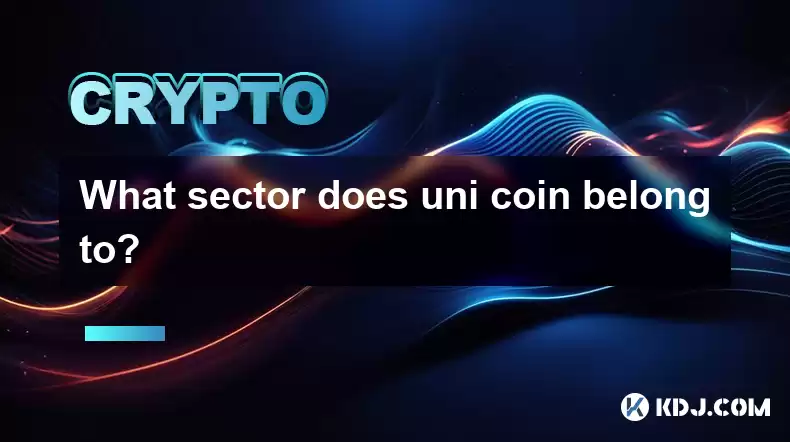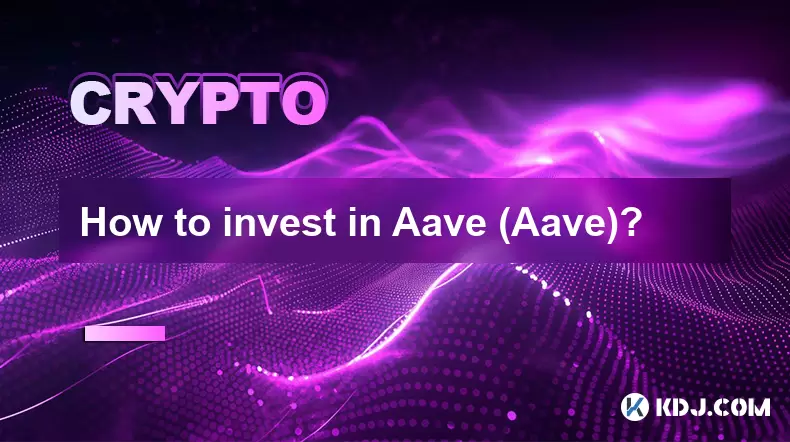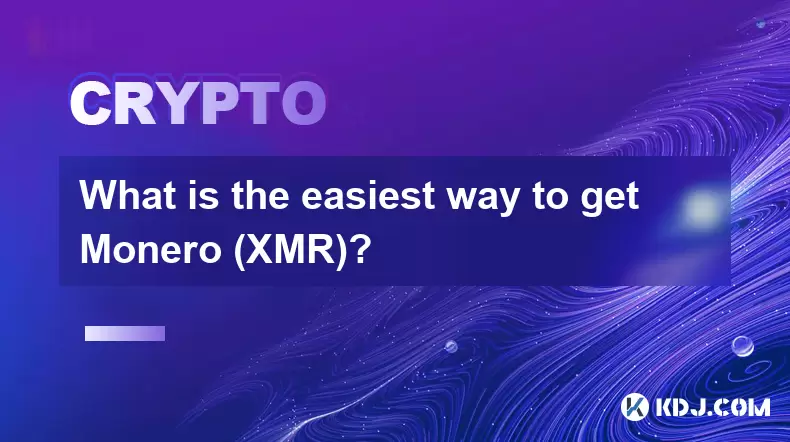-
 Bitcoin
Bitcoin $117400
1.88% -
 Ethereum
Ethereum $3867
5.29% -
 XRP
XRP $3.081
2.58% -
 Tether USDt
Tether USDt $1.000
0.03% -
 BNB
BNB $779.7
0.92% -
 Solana
Solana $171.8
2.11% -
 USDC
USDC $0.9999
0.01% -
 Dogecoin
Dogecoin $0.2172
5.80% -
 TRON
TRON $0.3413
1.41% -
 Cardano
Cardano $0.7641
3.06% -
 Hyperliquid
Hyperliquid $39.69
3.62% -
 Sui
Sui $3.731
6.73% -
 Stellar
Stellar $0.4125
3.55% -
 Chainlink
Chainlink $18.23
8.86% -
 Bitcoin Cash
Bitcoin Cash $579.5
1.41% -
 Hedera
Hedera $0.2538
4.02% -
 Ethena USDe
Ethena USDe $1.001
0.00% -
 Avalanche
Avalanche $22.81
2.82% -
 Litecoin
Litecoin $121.7
1.10% -
 UNUS SED LEO
UNUS SED LEO $8.962
-0.33% -
 Toncoin
Toncoin $3.324
2.94% -
 Shiba Inu
Shiba Inu $0.00001263
2.30% -
 Uniswap
Uniswap $10.24
4.95% -
 Polkadot
Polkadot $3.780
3.09% -
 Dai
Dai $1.000
0.03% -
 Bitget Token
Bitget Token $4.432
1.64% -
 Cronos
Cronos $0.1493
3.87% -
 Monero
Monero $256.7
-9.05% -
 Pepe
Pepe $0.00001092
3.99% -
 Aave
Aave $279.0
6.11%
What sector does uni coin belong to?
Uniswap's native token, UNI, empowers holders to participate in the governance of the decentralized exchange, enabling community-driven decision-making and fostering platform ownership.
Feb 15, 2025 at 05:30 pm

Key Points:
- Uni coin is a native token of the Uniswap decentralized exchange.
- Uniswap is a decentralized exchange (DEX) for trading cryptocurrencies.
- DEXs operate on the blockchain, eliminating the need for intermediaries and enabling peer-to-peer trading.
- Uniswap utilizes an automated market maker (AMM) model, facilitating liquidity and enabling efficient token swaps.
- The UNI governance token allows holders to participate in Uniswap's decision-making process.
Article:
Understanding Uni Coin and Its Sector
1. Definition of Uni Coin:
Uni coin is the native token of Uniswap, a prominent decentralized exchange (DEX) in the cryptocurrency realm. It serves as the backbone of the Uniswap ecosystem, facilitating essential functions and enabling community participation.
2. Decentralized Exchanges (DEXs):
Uniswap operates as a DEX, a decentralized platform that empowers users to trade cryptocurrencies directly with each other without relying on intermediary actors like centralized exchanges. DEXs are built on blockchain technology, ensuring transparency and trustless transactions.
3. Automated Market Maker (AMM) Model:
Uniswap employs an innovative AMM model, a liquidity provisioning mechanism that eliminates the need for traditional market makers. Liquidity providers contribute funds to liquidity pools, allowing users to trade various crypto assets efficiently without waiting for matching orders.
4. Decentralized Governance with UNI Token:
Holders of UNI tokens are granted governance rights within the Uniswap ecosystem. They participate in proposals, vote on key decisions, and steer the future development of the platform, fostering a community-centric approach to governance.
5. Utility of Uni Coin:
- Transaction Fees: Users incur fees in UNI when swapping tokens on Uniswap, contributing to the platform's revenue and liquidity.
- Governance: UNI token holders have voting rights in shaping Uniswap's future direction and operational policies.
- Liquidity Provision Incentives: Liquidity providers are rewarded with UNI tokens, encouraging active participation in supporting the platform's liquidity.
- Community Empowerment: Uniswap's decentralized governance model empowers UNI token holders to voice their opinions and actively engage in decision-making.
FAQs:**
1. What is the purpose of Uni coin?
Uni coin is the native token of the Uniswap decentralized exchange, facilitating transactions, enabling community governance, and supporting the platform's liquidity and operations.
2. How does Uni coin differ from other cryptocurrencies?
Uni coin is primarily associated with Uniswap and is not as widely adopted as other cryptocurrencies. Its value is closely tied to Uniswap's performance and is less prone to speculation compared to some other crypto assets.
3. How can I purchase Uni coin?
Uni coin is available for purchase on various cryptocurrency exchanges, such as Coinbase, Binance, and Kraken. These exchanges allow users to trade fiat currencies (e.g., USD, EUR) for UNI tokens.
Disclaimer:info@kdj.com
The information provided is not trading advice. kdj.com does not assume any responsibility for any investments made based on the information provided in this article. Cryptocurrencies are highly volatile and it is highly recommended that you invest with caution after thorough research!
If you believe that the content used on this website infringes your copyright, please contact us immediately (info@kdj.com) and we will delete it promptly.
- Pi Coin's dApp and AI Potential: Building a Decentralized Future
- 2025-08-08 02:30:12
- Ruvi AI Takes the Lead: Outshining Dogecoin on CoinMarketCap
- 2025-08-08 02:50:12
- Cryptos Under $1: Is Ripple Still the King?
- 2025-08-08 03:50:12
- Cold Wallet, Bonk Price, ICP Price: Navigating the Crypto Landscape in 2025
- 2025-08-08 03:56:12
- Memecoins, Low-Cap Gems, and the Hunt for 10,000x Gains: What's Next?
- 2025-08-08 02:50:12
- Bitcoin, Greenidge, and Liquidity: Navigating the Crypto Currents in NYC
- 2025-08-08 02:30:12
Related knowledge

Where can I buy UMA (UMA)?
Aug 07,2025 at 06:42pm
Understanding UMA and Its Role in Decentralized FinanceUMA (Universal Market Access) is an Ethereum-based decentralized finance (DeFi) protocol design...

What exchanges support buying IOTA (MIOTA)?
Aug 07,2025 at 09:58pm
Understanding the Role of Private Keys in Cryptocurrency SecurityIn the world of cryptocurrency, private keys are the cornerstone of ownership and con...

What is the best app to buy EOS?
Aug 07,2025 at 04:35pm
Understanding EOS and Its Role in the Cryptocurrency EcosystemEOS is a blockchain platform designed to support decentralized applications (dApps) with...

What platforms support buying Fantom (FTM)?
Aug 08,2025 at 01:56am
Overview of Fantom (FTM) and Its EcosystemFantom (FTM) is a high-performance, scalable, and secure layer-1 blockchain designed to overcome the limitat...

How to invest in Aave (Aave)?
Aug 08,2025 at 01:07am
Understanding Aave (AAVE) and Its Role in DeFiAave is a decentralized finance (DeFi) protocol that enables users to lend, borrow, and earn interest on...

What is the easiest way to get Monero (XMR)?
Aug 08,2025 at 02:56am
Understanding Monero (XMR) and Its Privacy FeaturesMonero (XMR) is a privacy-focused cryptocurrency that ensures complete anonymity in transactions th...

Where can I buy UMA (UMA)?
Aug 07,2025 at 06:42pm
Understanding UMA and Its Role in Decentralized FinanceUMA (Universal Market Access) is an Ethereum-based decentralized finance (DeFi) protocol design...

What exchanges support buying IOTA (MIOTA)?
Aug 07,2025 at 09:58pm
Understanding the Role of Private Keys in Cryptocurrency SecurityIn the world of cryptocurrency, private keys are the cornerstone of ownership and con...

What is the best app to buy EOS?
Aug 07,2025 at 04:35pm
Understanding EOS and Its Role in the Cryptocurrency EcosystemEOS is a blockchain platform designed to support decentralized applications (dApps) with...

What platforms support buying Fantom (FTM)?
Aug 08,2025 at 01:56am
Overview of Fantom (FTM) and Its EcosystemFantom (FTM) is a high-performance, scalable, and secure layer-1 blockchain designed to overcome the limitat...

How to invest in Aave (Aave)?
Aug 08,2025 at 01:07am
Understanding Aave (AAVE) and Its Role in DeFiAave is a decentralized finance (DeFi) protocol that enables users to lend, borrow, and earn interest on...

What is the easiest way to get Monero (XMR)?
Aug 08,2025 at 02:56am
Understanding Monero (XMR) and Its Privacy FeaturesMonero (XMR) is a privacy-focused cryptocurrency that ensures complete anonymity in transactions th...
See all articles

























































































